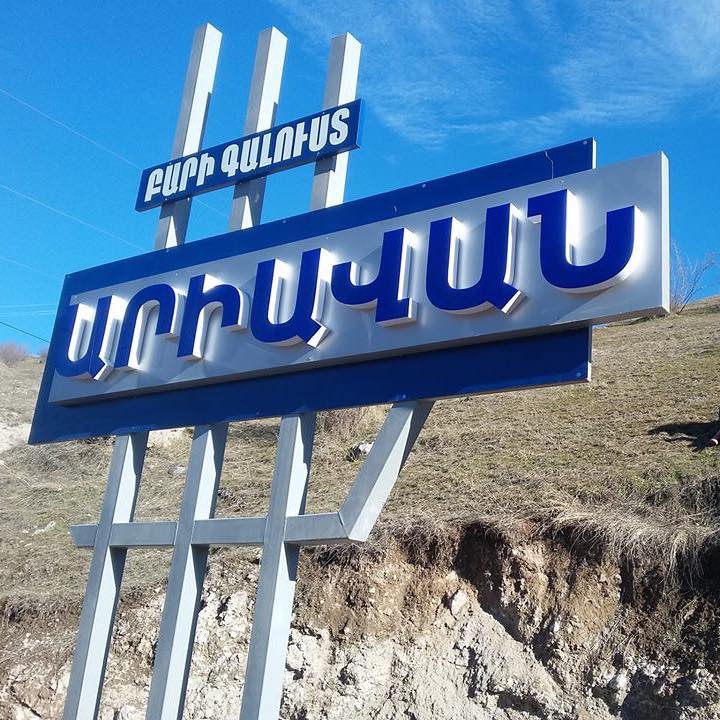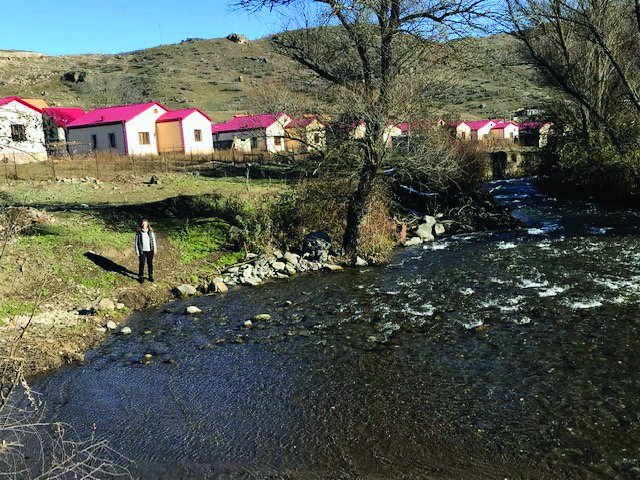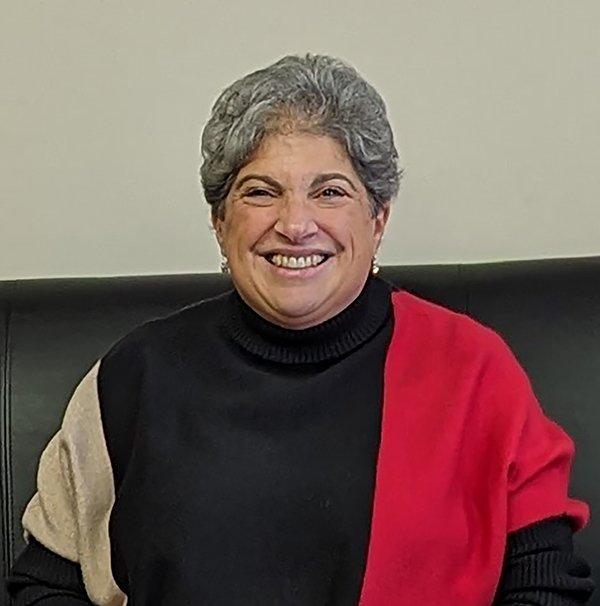 Nestled along the scenic Aghavno River and Lachin Corridor lies the village of Ariavan, also known as Aghavno. As Azerbaijan’s attacks against Artsakh intensified during the fall of 2020, most of the families in the village were forced to leave their homes, but nine defiant families chose to stay, determined to defend their land and property against the enemy’s advances.
Nestled along the scenic Aghavno River and Lachin Corridor lies the village of Ariavan, also known as Aghavno. As Azerbaijan’s attacks against Artsakh intensified during the fall of 2020, most of the families in the village were forced to leave their homes, but nine defiant families chose to stay, determined to defend their land and property against the enemy’s advances.
Ariavan is the first village you come upon in Artsakh after leaving the Armenian border when traveling along the Lachin Corridor connecting the republics of Armenia and Artsakh. Since the end of the war, two delegations from the Armenian Revolutionary Federation Eastern Region Central Committee (ARF-ER CC) and the Armenian Cultural Association of America (ACAA) Artsakh Fund have visited Ariavan, both to evaluate the needs of the villagers and to offer support and encouragement.

“Most importantly to me was the strategic location of the village and their [the villagers] resilience to stay and endure,” said Artsakh Fund committee member Pauline Dostoumian in a recent conversation with the Weekly. She explained that the Russian checkpoints and peacekeepers are close by, as is a beautiful Armenian church. Inexplicably, there have been many attempts made by Armenia’s administration to encourage the residents to leave Ariavan and Lachin city. Eventually, Lachin was deserted and the city currently resembles a ghost town, according to those who visited. Per the disastrous trilateral ceasefire agreement, the five kilometer-wide (approximately three miles) corridor continues to maintain the connection to Armenia. There is no reason for the villages in this corridor to be emptied of their residents. On the contrary, as ARF-ER CC member Sebouh Hatsakordzian explained, these villages must be resettled to secure the importance of the corridor, otherwise Artsakh will be disconnected from Armenia and “become an island surrounded by enemies.”
After the war was over, the Armenian government disconnected the electric power to Ariavan in a concerted effort to force the villagers to leave. On December 8 in response to those efforts, the ARF-ER members brought generators to the village to help provide electricity. In addition, the Armenian cell tower remains dismantled, eliminating cell coverage and cutting the village off from all kinds of communication, and the water source of the village was also disrupted for a few weeks. Recently, there were more attempts to empty the village.
After several meetings and discussions with Ariavan’s mayor Andranik Chavushyan and other villagers to determine their primary needs, the Artsakh Fund members agreed to visit the village again and help rebuild the school. The most important item on the villagers’ wish list was to repair and open the school; they believe that a fully-functional school will be a tangible reason for families to return to Ariavan. In early December when the ARF-ER members visited, the old school was in shambles with no glass on the windows due to the shelling of the village, and no desks and chairs because they were taken for the soldiers and volunteers to use. Prior to the attacks, there had been plans to build a new school building next to the old one, but after November 9 the contractor for the new school returned to Ariavan and began dismantling the metal studs and removing them. Mayor Chavushyan, who with his wife has five children ranging from infant to six years old, stopped him.
The second ACAA Artsakh Fund delegation visited Ariavan from December 27, 2020 to January 3, 2021, bringing food, supplies, gifts and clothing. During this time, the group was able to become better acquainted with the villagers and understand their needs and pain, especially during their first holiday season without their fallen or missing loved ones. Bringing in the new year in Ariavan, recalled Dostoumian, was emotional for the Artsakh Fund members. The group followed tradition and visited the nearby church after midnight (with the knowledge of the peacekeepers, of course), rang the church bell, recited prayers for the new year and lit candles both in the church and at the khatchkars, cross stones, outside the church.
The children were delighted to receive some Christmas gifts from the group and help set up a tree in the village. As a poignant and sad sign of the times, the tree was decorated with photos of those still missing or martyred during the war. “It was not a festive mood,” recalled Dostoumian, “but it was a survival mood and a determination to continue living there.” Dostoumian also stressed the importance of a solid educational environment for the children with age-appropriate, extra-curricular activities. Hatsakordzian agreed, noting the innocence of children and how eager they are to carry on and learn, despite almost losing their homeland.
It became clear that the restoration of the kindergarten section of the school was a priority, so the ACAA Artsakh Fund committed to these renovations. There will be a new classroom, a sleeping area for the children, kitchen, lunchroom and a larger multipurpose room which will also be available for village events. Most importantly, new bathrooms and sinks will be built indoors to eliminate the outdoor bathroom. In addition to the kindergarten, one room in the municipality building will be renovated to become a clinic with a separate entrance so that it may be operational and available 24 hours a day, seven days a week to provide important first aid to the villagers.
The entire project is in keeping with the way of life in Ariavan, with everyone working to help one another. “Everybody in the village is taken care of,” said Dostoumian, explaining that Mayor Chavushyan is doing everything possible to provide security for the village, including maintaining good relations with the nearby Russian peacekeepers and traveling to Goris for supplies. The villagers displayed the customary Armenian hospitality, always offering whatever refreshments were available to their guests. “They are doing their part being there,” reiterated Dostoumian. “It is our job to assist them in providing opportunities in that area, especially for the youth. Education is the start.”
Hatsakordzian maintains that financial assistance alone is not enough for the villagers of Ariavan. “We need to assist them morally as well, by being there for them, which will give them hope and raise their spirits,” he stressed. “We need to show them that their brothers and sisters abroad are there with them as they feel betrayed and abandoned by their government.” These visits by the ARF-ER and Artsakh Fund members have demonstrated the region’s tireless commitment to the resilient villagers.
Despite those feelings of betrayal, “morale was high and the residents were committed to staying in their homes,” offered Artsakh Fund member Arousiag Markarian. In fact, she said “there was hope that families and teachers would return once the school was renovated,” further indicating the importance of the ACAA Artsakh Fund’s project. In early December 2020, while only nine families were in the village, Ariavan’s school was able to resume operations. Thanks to the school’s reopening, from December 27 to January 3, five more families decided to return, and as of the end of January, 25 families (90 people) were living in the village.
If you would like to join the ACAA Artsakh Fund’s efforts in Ariavan, visit: givebutter.com/ariavan



Be the first to comment